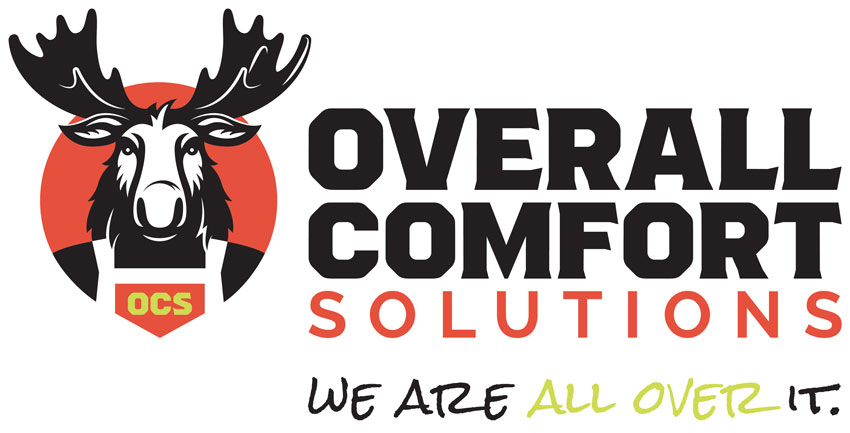Complete Guide to Boilers for Southern Illinois Homes
Boiler Installation and Service
Boiler heating systems provide exceptional comfort and efficiency for Southern Illinois homes through radiant heat distribution that eliminates the drafts and noise common with forced-air systems. Unlike furnaces that heat air, boilers heat water or steam that circulates through radiators, baseboard units, or radiant floor systems to warm your home evenly and quietly. From historic homes in downtown Carbondale with original cast-iron radiators to modern Herrin residences with sleek baseboard heating, boiler systems offer unique advantages for Williamson County homeowners seeking superior comfort and energy efficiency.
The longevity and reliability of boiler systems make them particularly well-suited for Southern Illinois’s climate conditions. Modern boilers typically last 20-30 years with proper maintenance, significantly longer than forced-air systems, while their ability to provide consistent warmth during the region’s variable winter temperatures—from frigid January mornings to mild February afternoons—ensures year-round comfort. Additionally, boiler systems offer excellent zoning capabilities, allowing homeowners to heat specific areas of their homes independently, which is especially beneficial for larger properties common throughout Marion, Carterville, and the surrounding rural areas of Williamson County.
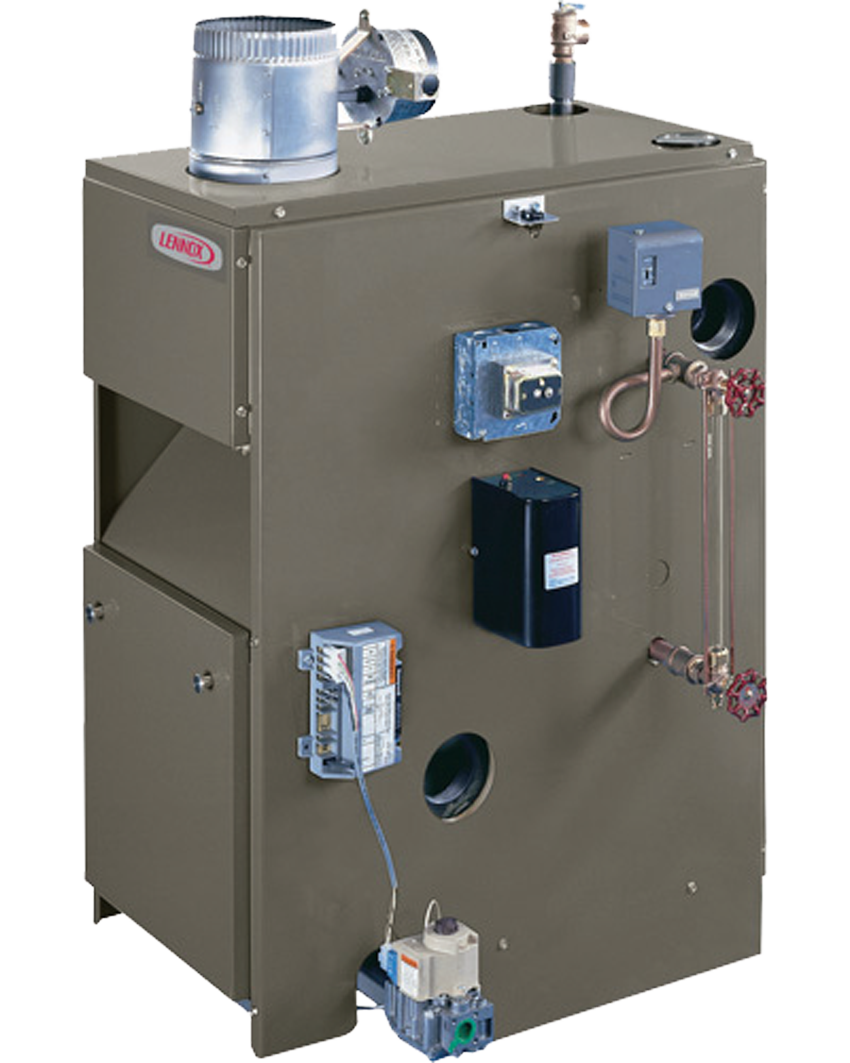
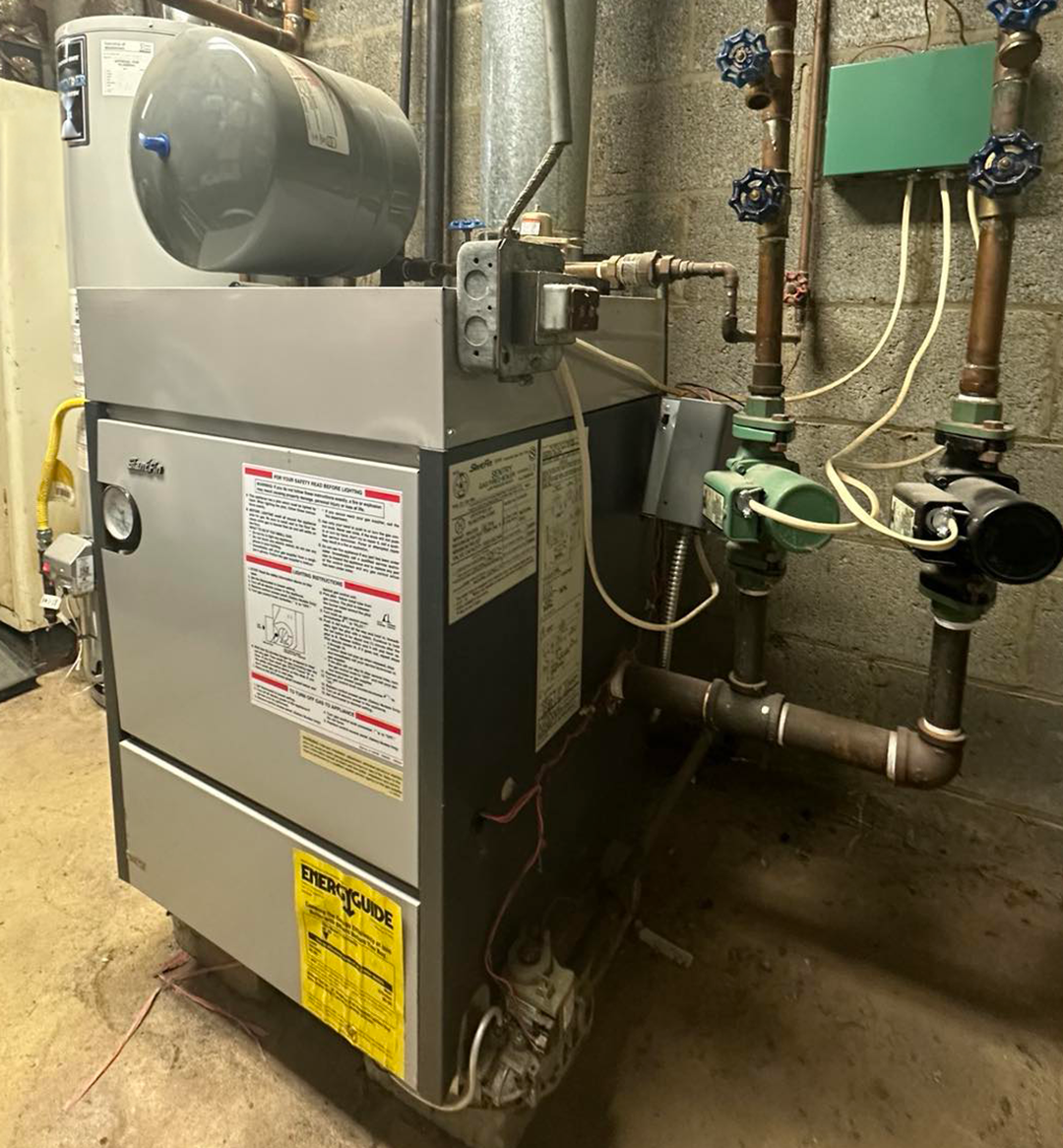
Natural Gas Boilers: Modern Efficiency Meets Proven Technology
Natural gas boilers dominate residential heating in areas where gas infrastructure supports reliable fuel delivery throughout Southern Illinois. These systems burn natural gas efficiently to heat water that circulates through your home’s heating distribution system, providing consistent temperatures without the air movement that spreads dust and allergens.
Conventional gas boilers operate with efficiency ratings of 80-85%, making them cost-effective for homes with existing boiler infrastructure or properties where radiant heating provides superior comfort compared to forced-air alternatives. These units work exceptionally well in older Marion and Carterville homes where original radiator systems remain functional and aesthetically appropriate.
Condensing gas boilers achieve 90-99% efficiency by capturing heat from exhaust gases that conventional units waste. This advanced technology particularly benefits larger homes or properties with high heating demands, providing substantial energy savings that justify higher equipment costs. Modern condensing boilers operate quietly and require minimal maintenance compared to older designs.
Combination boilers, or “combi” units, provide both space heating and domestic hot water from a single compact system. These space-saving designs work well in smaller homes, condominiums, or properties where separate water heaters prove impractical. Combi boilers eliminate the need for hot water storage tanks while providing unlimited hot water on demand.
Modulating gas boilers adjust heat output continuously based on heating demands, providing exceptional efficiency and comfort. These premium systems excel in custom homes, properties with radiant floor heating, or applications where precise temperature control matters for comfort or specialty uses like greenhouse heating or workshop applications.
Electric Boilers: Clean, Quiet Heat for Specific Application
Electric boilers serve Southern Illinois homes where natural gas remains unavailable or where clean, silent operation takes priority over operating costs. These systems use electric heating elements to warm water, eliminating combustion equipment and venting requirements that gas boilers need.
Operating costs typically exceed gas heating significantly, making electric boilers most practical for smaller homes, vacation properties, or applications where installation simplicity outweighs ongoing energy expenses. Many rural properties throughout Jackson County rely on electric boilers because extending gas service often costs more than the heating savings justify over reasonable payback periods.
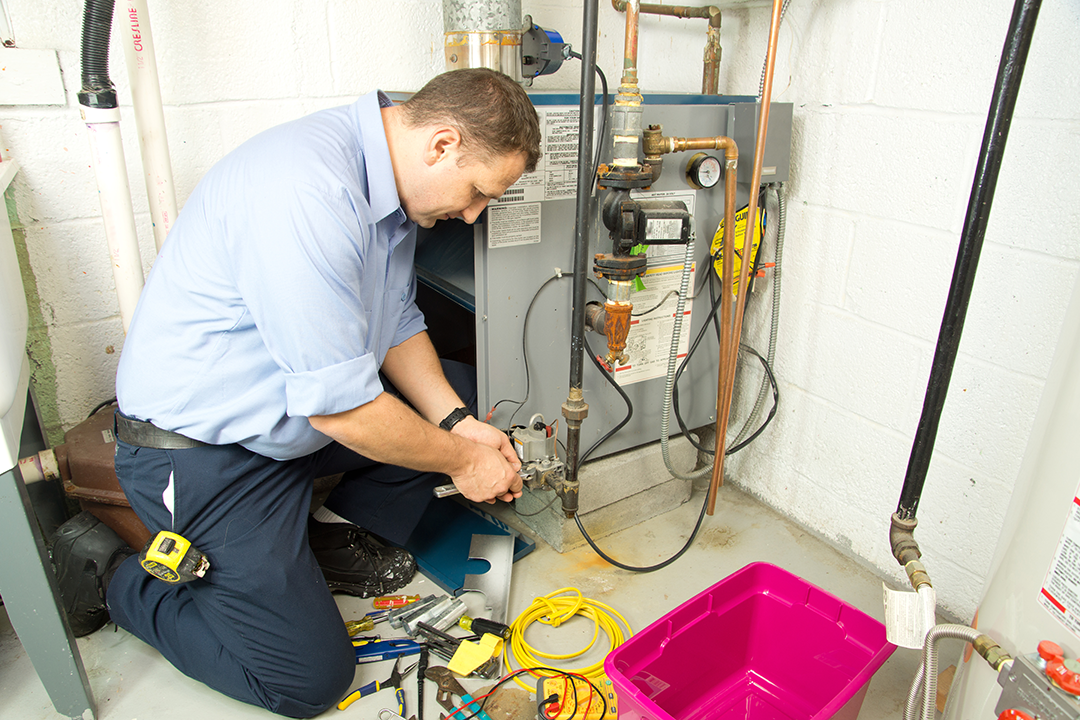
Compact electric boilers fit in small mechanical rooms, utility closets, or basement areas where gas boiler venting proves difficult or expensive. These units operate silently and require minimal maintenance, making them attractive for homes where noise concerns matter or where homeowners prefer simple, reliable heating equipment.
Zone control capability makes electric boilers excellent for radiant floor heating applications where different rooms need independent temperature control. Electric boilers respond quickly to thermostat changes and provide precise temperature control that works well with programmable thermostats and smart home automation systems.
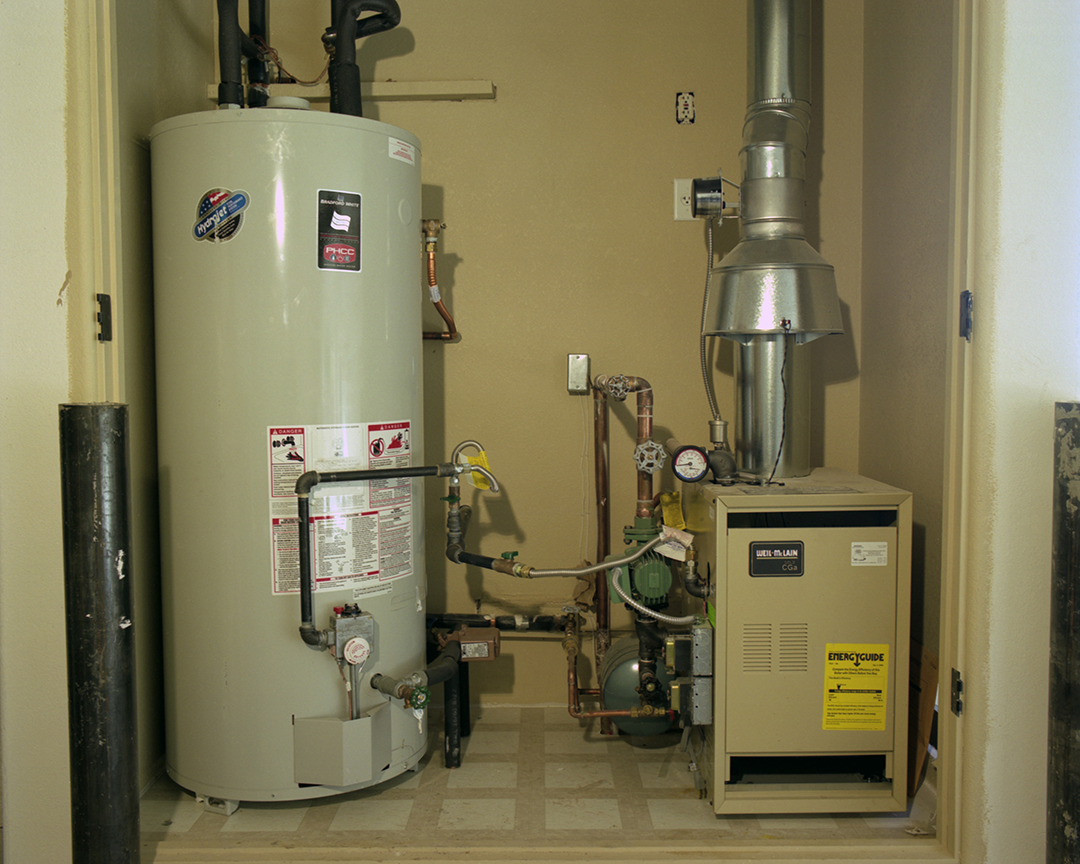
Oil and Alternative Fuel Boilers: Reliable Heat for Rural Properties
Oil boilers continue serving older Southern Illinois homes, particularly rural properties where original installations remain functional and fuel conversion costs prove prohibitive. These systems burn heating oil efficiently, providing dependable heat output regardless of utility interruptions that occasionally affect gas or electric service.
Modern oil boilers achieve excellent efficiency ratings while providing reliable heating for properties with existing oil infrastructure. Fuel storage requires periodic tank maintenance and delivery scheduling, though many homeowners appreciate the energy independence that stored fuel provides during severe weather events that sometimes disrupt utility services.
Biodiesel compatibility allows some oil boilers to burn renewable fuels that reduce environmental impact while maintaining heating reliability. This option appeals to environmentally conscious homeowners who want cleaner burning without the expense of complete system replacement or fuel conversion.
Propane boilers serve homes where natural gas infrastructure remains unavailable but where cleaner burning than heating oil is preferred. These systems work well for vacation properties, rural homes, or applications where fuel storage flexibility matters more than operating cost optimization.
Matching Boiler Systems to Regional Home Styles
Historic homes throughout downtown Carbondale and Herrin often feature original radiator systems that work beautifully with modern boiler replacements. Cast-iron radiators provide excellent heat distribution and thermal mass that maintains comfortable temperatures long after boilers cycle off, reducing energy consumption while preserving period architectural character.
Victorian and early 20th-century homes frequently include multi-zone radiator systems that allow different temperature control for various living areas. Modern boiler controls can enhance these existing zone capabilities, providing sophisticated temperature scheduling and remote control options that improve comfort while reducing energy waste through unused area heating.
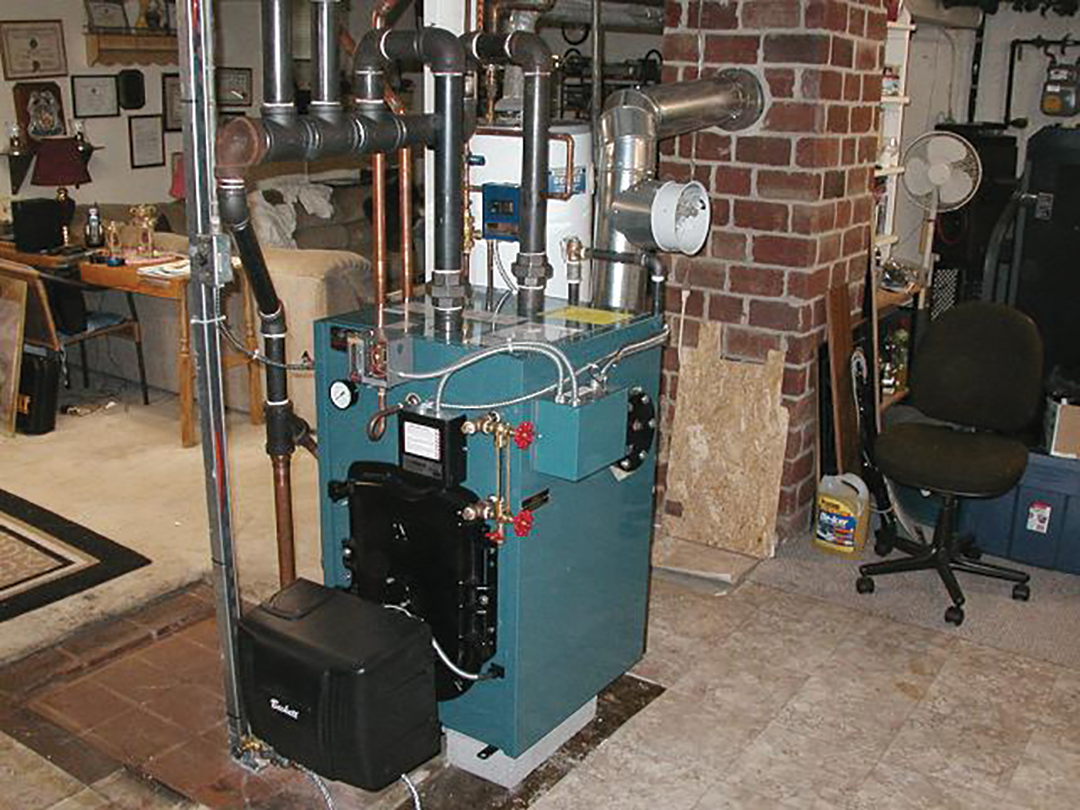
Ranch homes built during the 1950s-70s often feature baseboard heating systems that work efficiently with replacement boilers. These single-level designs benefit from boiler heating’s even temperature distribution, eliminating the hot and cold spots common with forced-air systems in homes with varying sun exposure and room sizes.
Multi-level homes benefit from boiler heating’s natural heat distribution that doesn’t fight against rising warm air like forced-air systems. Two-story homes throughout Marion and surrounding communities often achieve better temperature balance with boiler systems, especially when combined with modern zone controls that address different heating needs between levels.
Open-concept designs in newer construction can utilize radiant floor heating powered by high-efficiency boilers, providing invisible, silent heating that doesn’t interfere with architectural aesthetics. This approach works particularly well in custom homes where maintaining clean sight lines and eliminating heating equipment visibility matters for interior design goals.

Efficiency and Comfort Advantages for Southern Illinois Climate
Southern Illinois’s moderate heating season allows boiler systems to operate efficiently without the extreme demands that challenge heating equipment in northern climates. Boiler heating’s radiant warmth feels comfortable at lower air temperatures, often allowing thermostat settings 2-3 degrees lower than forced-air systems while maintaining equivalent comfort levels.
Humidity control improves naturally with boiler heating because the systems don’t blow dry air throughout your home like furnaces do. This benefit particularly matters during Southern Illinois winters when low humidity causes comfort problems and increases heating costs as dry air feels cooler than properly humidified air.
Zone control capabilities allow boiler systems to heat only occupied areas, reducing energy waste in unused rooms or during varying family schedules. This flexibility works well for larger homes, multi-generational households, or properties with seasonal room usage patterns common in our region.
Radiant heating eliminates ductwork air leaks that waste 20-30% of heating energy in typical forced-air systems. This efficiency advantage helps offset boiler systems’ higher equipment costs while providing superior comfort through even heat distribution that doesn’t create drafts or cold spots.
Selecting the Right Boiler for Your Home
Professional heating load calculations determine proper boiler sizing based on your home’s specific heat loss characteristics, ensuring adequate heating capacity without the oversizing problems that reduce efficiency and comfort. Proper sizing becomes especially important for boiler systems because undersized units struggle to maintain temperatures while oversized systems cycle frequently and waste energy.
Distribution system compatibility influences boiler selection as much as heating capacity requirements. Homes with existing radiators, baseboard units, or radiant systems need boilers designed for those specific applications, while new installations allow choosing distribution methods that optimize comfort and efficiency for your particular home design.

Fuel availability and long-term operating costs vary significantly between boiler types, making careful analysis important for optimal value. Natural gas typically provides the lowest operating costs where available, while electric boilers offer installation simplicity at higher ongoing expenses, and oil boilers provide energy independence with moderate operating costs.
Professional consultation ensures your boiler selection addresses your specific heating requirements, existing infrastructure, and comfort preferences. Overall Comfort Solutions evaluates your home’s heating distribution system, insulation levels, and usage patterns to recommend boiler solutions that provide optimal performance and efficiency for Southern Illinois conditions.
Contact us today to explore how modern boiler technology can provide superior comfort, efficiency, and reliability for your home’s unique heating requirements throughout our region’s varying seasonal demands.
